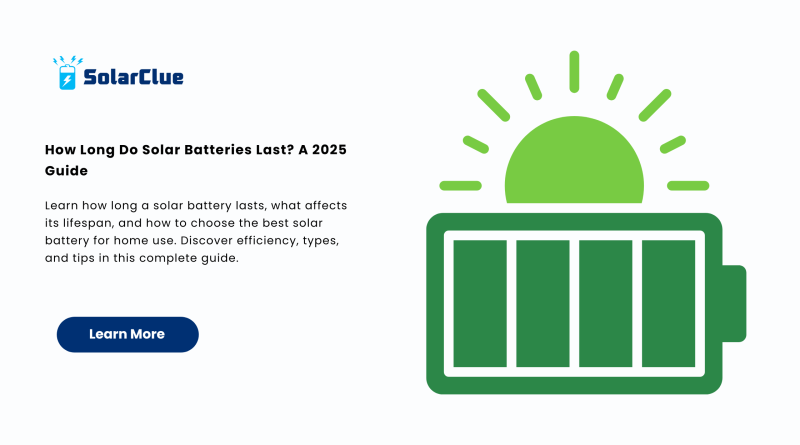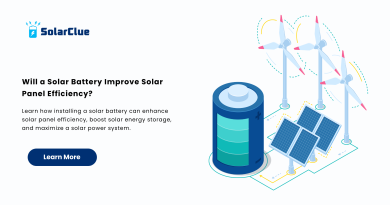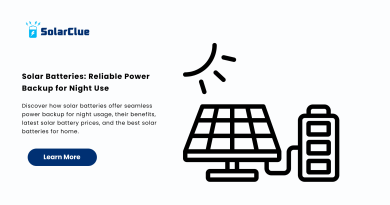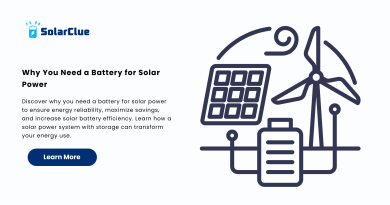How Long Do Solar Batteries Last? A 2025 Guide
One of the most common questions from homeowners investing in solar systems is: how long do solar batteries last? With the rising demand for reliable, renewable energy, understanding the durability and lifespan of a solar battery is essential. Whether you’re aiming for energy independence, backup during outages, or lower utility bills, your solar storage choice plays a huge role. In this blog, we explore how long a solar battery for home can last, what affects its life, and how to select the best solar battery suited to your needs in 2025.
Table of Contents
- 1 What is a Solar Battery?
- 2 How Long Do Solar Batteries Last?
- 3 Key Factors Affecting Solar Battery Lifespan
- 4 Types of Solar Batteries and Their Lifespans
- 5 Signs That Your Solar Battery Needs Replacing
- 6 Tips to Maximize Your Solar Battery’s Lifespan
- 7 How to Choose the Best Solar Battery for Home
- 8 Are Solar Batteries Worth It?
- 9 Safety of Solar Batteries
- 10 Do Solar Batteries Work in Power Outages?
- 11 Battery Recycling and Environmental Impact
- 12 Trends to Watch in 2025
- 13 Conclusion
- 14 FAQs
What is a Solar Battery?
A solar battery stores extra electricity produced by your solar panels. Instead of sending excess energy back to the grid, the battery keeps it for use during nighttime, cloudy days, or power cuts. It’s a key part of modern solar energy systems, offering flexibility, autonomy, and peace of mind. The most common types of solar batteries include lithium-ion, lead-acid, and flow batteries, each with different solar battery efficiency, costs, and lifespans.
How Long Do Solar Batteries Last?
Typically, solar batteries last between 5 to 15 years. Lithium-ion batteries, which are considered the best solar battery for home, often last 10 years or more with minimal maintenance. On the other hand, traditional lead-acid batteries may need replacing every 3 to 7 years. Ultimately, battery lifespan depends on various factors such as usage, temperature, depth of discharge, and quality.
Key Factors Affecting Solar Battery Lifespan
-
Battery Type: Lithium-ion batteries generally outlast lead-acid ones. They also offer better solar battery efficiency and require less maintenance.
-
Depth of Discharge (DoD): Regularly using the full capacity of a battery shortens its life. Operating within a recommended DoD preserves battery health.
-
Cycle Life: Each full charge and discharge is a cycle. Batteries with higher cycle life last longer.
-
Temperature: Extreme heat or cold can reduce battery performance and life expectancy.
-
Maintenance: Lead-acid batteries need frequent upkeep, while lithium-ion batteries are low-maintenance.
-
Battery Management System (BMS): A smart BMS regulates performance, charging, and safety, extending the battery’s usability.
Types of Solar Batteries and Their Lifespans
Lithium-Ion Batteries
The current industry standard and the best solar battery option for homes. They are lightweight, compact, highly efficient (90%+), and typically last 10–15 years. They’re more expensive upfront but offer excellent return on investment over time.
Lead-Acid Batteries
Older but more affordable, lead-acid batteries last around 3–7 years. They require regular water topping, venting, and maintenance. Their lower solar battery efficiency makes them less ideal for high-usage homes.
Flow Batteries
These are newer and mostly used in commercial settings due to their size and cost. They can last up to 20 years, with excellent cycle performance and stable output, but are not yet the best solar battery for home use.
Signs That Your Solar Battery Needs Replacing
-
Battery discharges faster than usual
-
You notice reduced energy storage
-
Higher electricity bills despite solar use
-
Leakage, corrosion, or swelling in battery casing
-
Frequent system alerts or error messages
If you’re facing any of these issues, it may be time to explore new battery options. For guidance, check solarclue.com for professional advice and affordable solutions.
Tips to Maximize Your Solar Battery’s Lifespan
-
Keep battery temperature controlled and sheltered
-
Avoid 100% discharge—maintain a safe DoD
-
Use a high-quality Battery Management System (BMS)
-
Get your system professionally installed
-
Schedule regular check-ups or monitoring if available
Investing in a quality system and following these tips can help your solar battery last well beyond a decade.
How to Choose the Best Solar Battery for Home
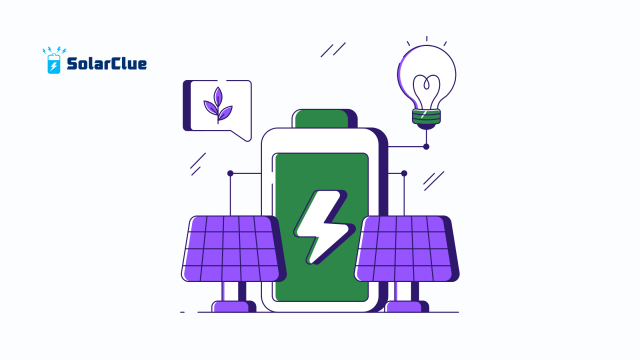
Choosing the best solar battery for home isn’t just about the price. Consider these key factors:
-
Capacity: Match the battery size to your household’s daily energy use.
-
Cycle Life: More cycles mean better durability over time.
-
Warranty: A good battery should come with at least a 10-year warranty.
-
Efficiency: Look for higher round-trip solar battery efficiency (above 85%).
-
Brand Reputation: Opt for trusted brands with proven performance history.
-
Compatibility: Ensure the battery fits your existing inverter and solar setup.
For expert comparisons and ratings, you can visit blog.solarclue.com and browse real-world reviews and use cases.
Are Solar Batteries Worth It?
Yes—if you’re looking for energy independence, grid stability, and long-term savings, a solar battery is a valuable investment. While they do come with upfront costs, especially for lithium-ion models, the benefits often outweigh the price in the long run. You’ll gain peace of mind during outages, reduce your electricity bill, and increase your home’s energy efficiency.
Safety of Solar Batteries
Modern solar batteries are very safe. Most high-quality batteries come with multiple built-in protections, including thermal regulators, surge protection, and auto shutoff systems. When installed correctly by professionals, they pose minimal safety risk.
Do Solar Batteries Work in Power Outages?
Absolutely. When installed with the right inverter and setup, a solar battery for home will continue to power your essentials during a blackout. This makes them incredibly useful in areas with unreliable grids or frequent weather disruptions.
Battery Recycling and Environmental Impact
Proper disposal is crucial. Many manufacturers now offer battery recycling programs, and some even provide trade-in offers for eco-conscious users. Disposing of your old solar battery responsibly helps reduce e-waste and supports a greener future.
Trends to Watch in 2025
This year, the focus is on smart batteries, hybrid systems, and higher solar battery efficiency. Expect better pricing, integration with home automation, and advanced battery analytics. Technology is evolving quickly, and the best solar battery of tomorrow might be smarter, safer, and more affordable than ever before.
Conclusion
So, how long do solar batteries last? The answer depends on the type, quality, usage, and maintenance. On average, a solar battery can last between 5 to 15 years—with lithium-ion leading the way in longevity and performance. If you’re investing in solar, don’t overlook the battery. Choosing the best solar battery for home ensures that you not only save money but also take control of your power.
Still have questions or ready to invest in a battery that suits your solar setup? Visit us at solarclue.com for expert recommendations, and explore real-life solar stories and updates at blog.solarclue.com. Your solar journey starts today—power up smart, and live empowered.
FAQs
1. What is the average lifespan of a solar battery?
A typical solar battery lasts 5 to 15 years depending on type, usage, and maintenance.
2. Which is the best solar battery for home use?
Lithium-ion batteries are generally considered the best solar battery for home due to their efficiency and longevity.
3. How can I extend the life of my solar battery?
Maintain a proper depth of discharge, avoid extreme temperatures, and invest in a good BMS system.
4. Are solar batteries safe for residential use?
Yes, modern batteries are equipped with safety mechanisms and are perfectly safe when installed professionally.
5. Do solar batteries help during power cuts?
Yes, with the right setup, your solar battery can provide backup power during outages.

